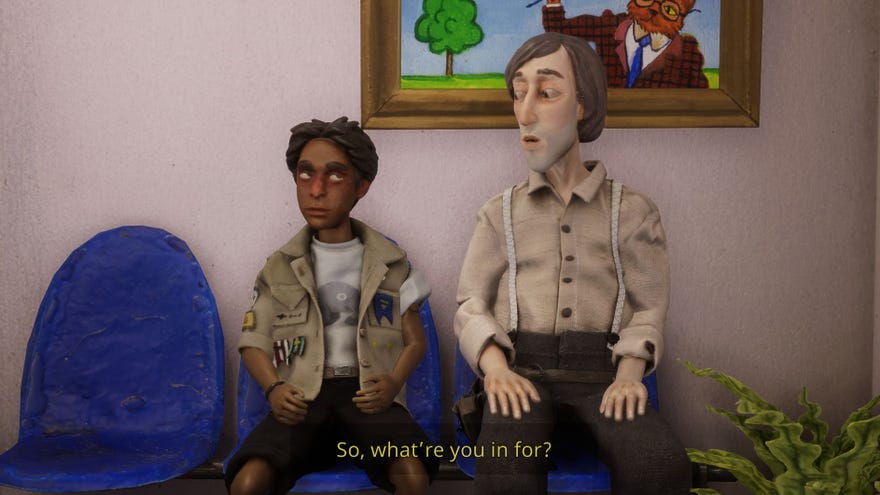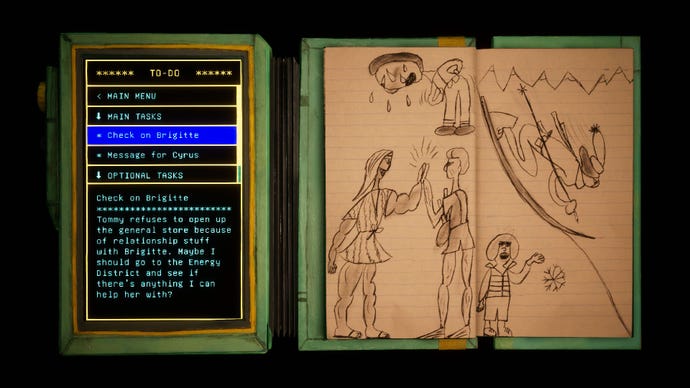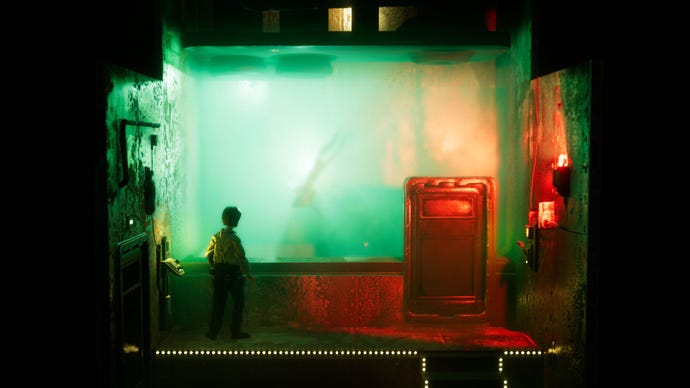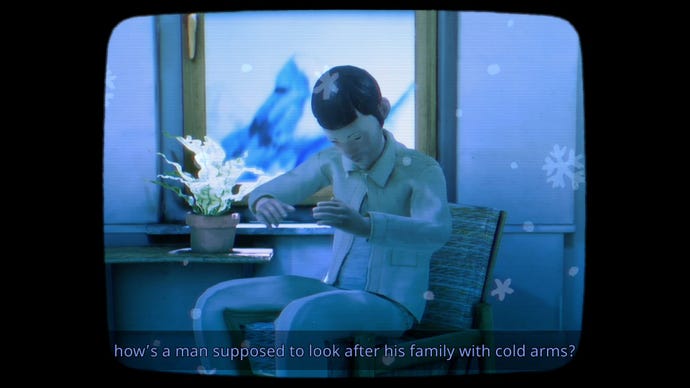HomeReviewsHarold Halibut
Harold Halibut review: a sweet, restrained story about finding your way homeStill waters run deep
Still waters run deep
Image credit:Rock Paper Shotgun/Slow Bros.
Image credit:Rock Paper Shotgun/Slow Bros.

I love miniatures, and Harold Halibut is beautiful. It’s also a lovely story about finding yourself and your place in the world, even if that place is unexpected, and having the courage to take that step. There are unexpected silly bits and strange bits and bits where people break into song, and bits where you read undelivered letters. But, at the same time, I totally understand why some people would find it boring.
To see this content please enable targeting cookies.Manage cookie settings
To see this content please enable targeting cookies.Manage cookie settings
You play the titular Harold. He’s the odd-jobsman on the Fedora, a former colony ship that left a seemingly doomed Earth and crashed on an ocean planet. The inhabitants disassembled the Fedora and made it into a sort of cute Rapture-from-BioShock- there are different districts for work, play, science, etc., and you get around through a network of tubes. The details are sometimes unbelievably great, both specific and odd, and the way some sequences are filmed are downright cinematic in a way that many game directors think they are, but are not really.
To do:Harold has a kind of PDA that gives him a to do list, and where he can receive messages from other characters (the game sometimes skips a few weeks, and you’ll have loads of new messages when that happens. They’re cute!). He also has a notepad where he draws stuff that happens to him - it’s later suggested he’s dyslexic, or something like it. The drawings are another way you can get glimpses of what Harold really thinks about the world, when he doesn’t always express it otherwise.Image credit:Rock Paper Shotgun/Slow Bros.


Image credit:Rock Paper Shotgun/Slow Bros.


But Harold Halibut doesn’t shy away from being weird. At one point early on, Harold bursts into a musical number about wanting more from life, one of a few surreal sequences that bend reality on the Fedora. There are montages that sort of recall Rocky or Scarface but of Harold doing wholesome things and getting to know people. He joins the unlikely revolutionaries to spy on the head of All Water and tries to infiltrate her office as a cover of Bella Ciao plays; he tries a tiny artificial ski slope; there’s an achievement for watching a mime perform a weird one-man show. While most of the game takes place on the Fedora, Harold also goes to another community which is full of strange little interactions and is an organic, colourful place that’s the complete opposite of the Fedora. It’s funny, charming, and crafted with great attention to detail in the sets and the writing.
At the same time, Harold Halibut is very slow. You’ll mostly be talking to people and then, at their behest, heading off to talk to someone else, and you will become intimately familiar with the various stairs and corridors and Harold’s odd little run. There aren’t anypuzzles, it’s just conversations and being curious, and 10 hours of it do start to feel like a long time. No one would allow Wes Anderson to make a 10-hour film for exactly this reason. I think you could snip a decent chunk out of Harold Halibut, especially the early chapters, and come out with something leaner without it being meaner. But even as it is, the ending is a good payoff to a sweet story, with plenty of chuckles and surprises along the way.